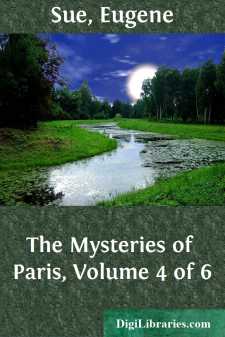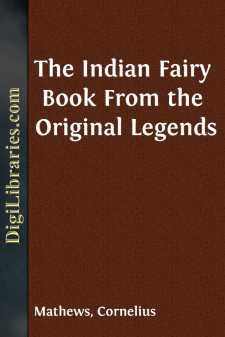Categories
- Antiques & Collectibles 13
- Architecture 36
- Art 48
- Bibles 22
- Biography & Autobiography 813
- Body, Mind & Spirit 142
- Business & Economics 28
- Children's Books 13
- Children's Fiction 10
- Computers 4
- Cooking 94
- Crafts & Hobbies 4
- Drama 346
- Education 46
- Family & Relationships 57
- Fiction 11828
- Games 19
- Gardening 17
- Health & Fitness 34
- History 1377
- House & Home 1
- Humor 147
- Juvenile Fiction 1873
- Juvenile Nonfiction 202
- Language Arts & Disciplines 88
- Law 16
- Literary Collections 686
- Literary Criticism 179
- Mathematics 13
- Medical 41
- Music 40
- Nature 179
- Non-Classifiable 1768
- Performing Arts 7
- Periodicals 1453
- Philosophy 64
- Photography 2
- Poetry 896
- Political Science 203
- Psychology 42
- Reference 154
- Religion 513
- Science 126
- Self-Help 84
- Social Science 81
- Sports & Recreation 34
- Study Aids 3
- Technology & Engineering 59
- Transportation 23
- Travel 463
- True Crime 29
Sort by:
CHAPTER XIII THE PURSUIT Behind the sledge ran Howland, to the right of the team ran Jean. Once or twice when Croisset glanced back his eyes met those of the engineer. He cracked his whip and smiled, and Howland's teeth gleamed back coldly in reply. A mutual understanding flashed between them in these glances. In a sudden spurt Howland knew that the Frenchman could quickly put distance between...
more...
by:
John Galsworthy
SCENE I It is six o'clock of a November evening, in KEITH DARRANT'S study. A large, dark-curtained room where the light from a single reading-lamp falling on Turkey carpet, on books beside a large armchair, on the deep blue-and-gold coffee service, makes a sort of oasis before a log fire. In red Turkish slippers and an old brown velvet coat, KEITH DARRANT sits asleep. He has a dark,...
more...
by:
Samuel Johnson
AN ESSAY ON THE LIFE AND GENIUS OF SAMUEL JOHNSON, LL.D. When the works of a great writer, who has bequeathed to posterity a lasting legacy, are presented to the world, it is naturally expected that some account of his life should accompany the edition. The reader wishes to know as much as possible of the author. The circumstances that attended him, the features of his private character, his...
more...
ACT I. Various groups of Nobles, Citizens, Merchants, Foreigners, Water-Carriers, Flower Girls, &c., pass and repass. Procession of the Doge, in state, across the square. ANTONIO, SALARINO, and SALANIO come forward. Ant. In sooth, I know not why I am so sad;It wearies me; you say, it wearies you;But how I caught it, found it, or came by it,What stuff 'tis made of, whereof it is born,I am to...
more...
by:
Eugene Sue
CHAPTER I. RIGOLETTE'S FIRST SORROW. Rigolette's apartment was still in all its extreme nicety; the large silver watch placed over the mantelpiece, in a small boxwood stand, denoted the hour of four. The severe cold weather having ceased, the thrifty little needlewoman had not lighted her stove. From the window, a corner of blue sky was scarcely perceptible over the masses of irregularly...
more...
by:
John Foster
Advertisement If the circumstance of a manner of introduction somewhat different from what would be expected in a composition of the essay class were worth a very few words of explanation, it might be mentioned, that the following production has grown out of the topics of a discourse, delivered at a public anniversary meeting in aid of the British and Foreign School Society. When it was thought, a good...
more...
THE CELESTIAL SISTERS. Waupee, or the White Hawk, lived in a remote part of the forest, where animals abounded. Every day he returned from the chase with a large spoil, for he was one of the most skillful and lucky hunters of his tribe. His form was like the cedar; the fire of youth beamed from his eye; there was no forest too gloomy for him to penetrate, and no track made by bird or beast of any kind...
more...
by:
Herbert Hoover
CHAPTER I. Valuation of Copper, Gold, Lead, Silver, Tin, and Zinc Lode Mines.DETERMINATION OF AVERAGE METAL CONTENT; SAMPLING, ASSAY PLANS, CALCULATIONS OF AVERAGES, PERCENTAGE OF ERRORS IN ESTIMATE FROM SAMPLING.The following discussion is limited to in situ deposits of copper, gold, lead, silver, tin, and zinc. The valuation of alluvial deposits, iron, coal, and other mines is each a special science...
more...
by:
Margaret Penrose
CHAPTER I DOROTHY The day of days had come at last: Dorothy would be the Daughter of theRegiment. "Lucky you don't have to curl your hair, Doro, for the fog is like rain, and that's the worst kind for made curls," said Tavia. "Oh, I do hope it is not going to rain!" "No, it surely won't. But come, don't let's be late." "There's heaps of time,...
more...
THE DAWN OF A GALA DAY To begin with the old rigmarole of childhood. In a country there was a shire, and in that shire there was a town, and in that town there was a house, and in that house there was a room, and in that room there was a bed, and in that bed there lay a little girl; wide awake and longing to get up, but not daring to do so for fear of the unseen power in the next room—a certain...
more...











